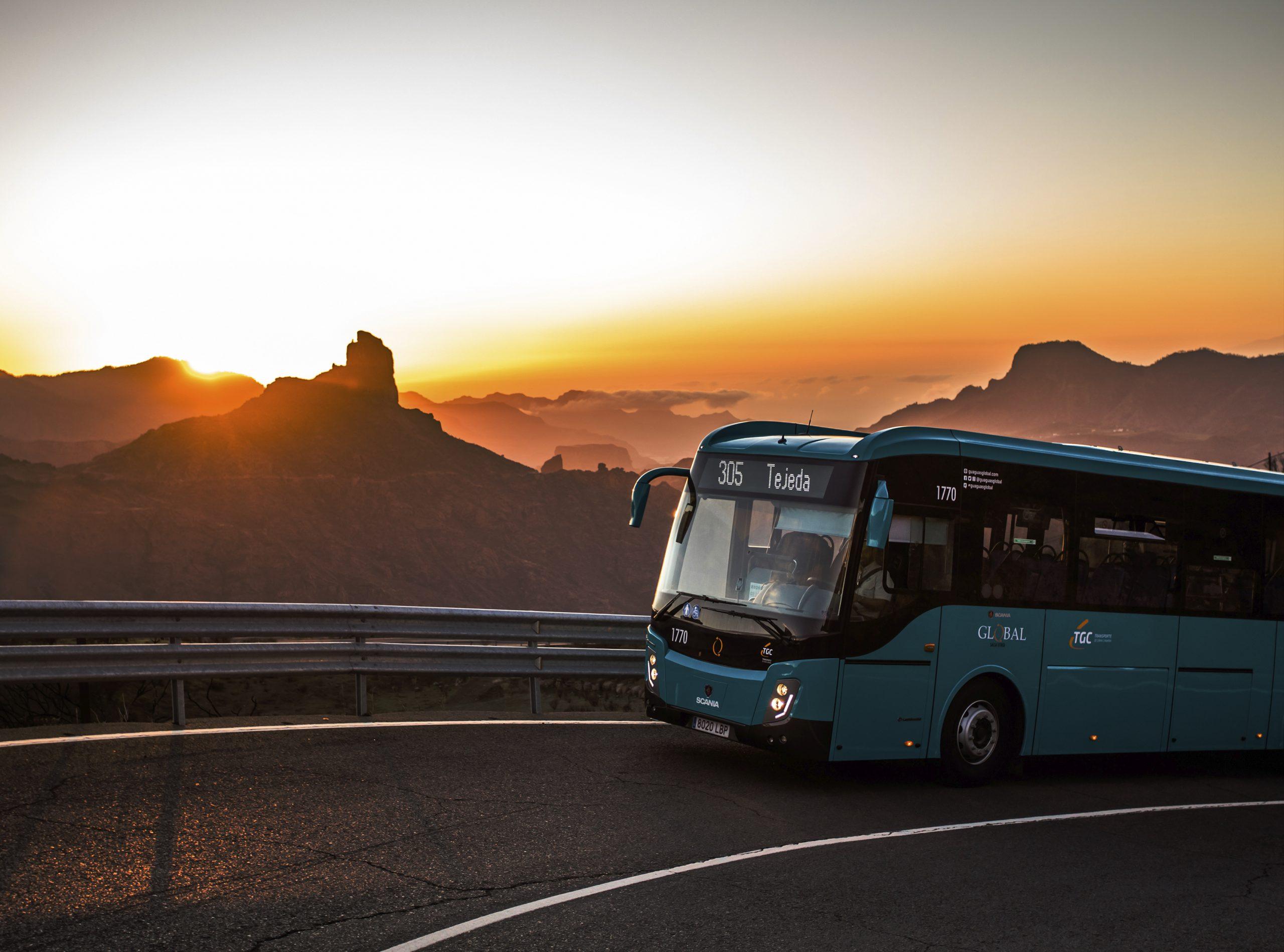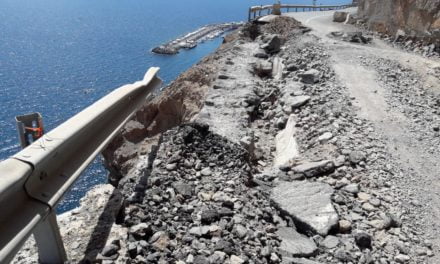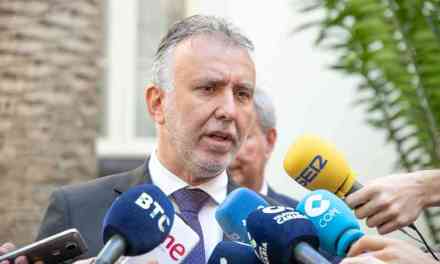Free public transport in the Canary Islands is to be limited to those people who use bus services on a regular basis, in their day-to-day activities, using one of the usual monthly or annual bus passes already issued by the Gran Canaria Single Transport Authority or similar institutions on the rest of the islands.
So, free travel will not simply apply to everyone who wants to get on a bus, but will be focused towards holders of these multi-trip cards and passes, which in the case of Gran Canaria include the Wawa Joven, the Canarian Resident Card and the Gold Bonus for seniors and retirees. These three cards are valid across all six regular passenger transport companies on the island: Guaguas Municipales, Global, La Pardilla, Gumidafe, Telbus and Guzmán Sosa.
Traditional payment for sporadic users and tourists
For those that use the bus sporadically, and for non-residents and tourists, traditional bus fares are to be maintained, paid directly to the driver and at current ticket prices. It still remains to be determined whether the 10 trip multipass from Guaguas Municipales is to be included in the state aid..
This was the framework included in the regulations from the state government, discussed at the meeting this Thursday between the Regional Minister of Transport, Sebastián Franquis, and representatives of the seven island cabildos, in which it was decided to request a meeting with Spain’s Ministry of Transport to coordinate the application of this subsidy as of January 1, 2023 and evaluate the repercussions that its implementation will have, so as to determine the costs involved.
Free bus vouchers will force the Cabildo de Gran Canaria to increase its aid for public transport by around €60 million. This is according to the initial calculation from the island government and operators, based on the expected increase in travellers, which could be up to some two million more bus users per year, which implies having to acquire new vehicles, around 130 across the entire Canary Islands, and hiring more drivers, according to Miguel Ángel Pérez del Pino, Gran Canaria’s Minister of Transport and Mobility.
Difficulties in calculating the costs
The cost of the free bus passes, for the coffers of the island cabildos, is one of the more controversial points of the agreement struck between the central government of Pedro Sánchez and the Canarian Coalition, in exchange for their support for the 2023 State Budget, leading the Regional Minister, Sebastián Franquis, to start negotiating requests from the island cabildos for the Ministry to lead the implementing of this gratuity on the buses and trams of the Canary Islands.
“The free buses measure seems good for all of us and, therefore, we applaud it because it will serve to encourage people to use the public services, but at the same time it poses a series of difficulties, which is what we have put on the table”, said Franquis, who stressed that “since the measure of lowering prices of the passes by 50%, which came into force on September 1, the number of new passengers has increased by around 15% and, logically, we expect a greater increase, which is why we must prepare the public land transport service in our community to face this situation with optimal conditions”.
 Not enough vehicles
Not enough vehicles
Among the consequences of the new subsidies, according to Franquis, is having enough vehicles to meet the high demand for new users that is expected from January 1. “In order to maintain the level of quality of the service that is currently provided in the Canary Islands, an increase in resources is logically required for the purchase of new buses that are currently not available,” declared the Regional Minister, who admitted that “they already have had difficulties in being able to meet the demand of passengers at certain peak hours of the day as a result of the entry into force of the 50% discount.”
With the current fleet of buses on each of the islands, it is impossible to serve that volume of users, especially at very specific times, “with the added difficulty that it is not possible to acquire a whole series of new buses from one night to the next day,” he said. Among the measures that have been evaluated is the rental of vehicles to deal with the expected number of new bus users since purchasing is a complex process that takes several months. In fact, the buses originally requested by the cabildos in 2021 are only now arriving.
“In that meeting with the Ministry we are going to propose an increase in the resources for the purchase of vehicles and also clarify the meaning of the financing that will come from the State, because it must be clear that the gratuity is going to lead to an increase in the cost of the cabildos and town halls, which logically will have to be incorporated into this negotiation. There is no doubt that this is a difficulty, but we are all agreed we can overcome all the problems”, concluded Franquis.
For how long?
Antonio Morales, president of the Gran Canaria Cabildo, has also referred to this new aid saying that “the State Government has been told that it is making a decision that is transcendental for the Canary Islands and, if it adopts it, it must do so with all means necessary”.
“I am not saying that it is bad, what I am saying is that it would be bad and detrimental for public transport, for what we have been achieving in recent years, which has increased passengers by 88%, if suddenly now there is a flood without means, if there are no buses, there are no drivers, and people go to take the bus and queues form… could the opposite, dissuasive effect be produced?”, he asked.
Morales emphasises the doubts that the cabildos have: “How is the measure going to be adopted? For how long? For a year, forever? If it is forever, it encourages you to make important investments in new buses, in hiring new staff. Is it only for one year? And what do we do then if we have to buy new buses? We run that risk, do the analysis, how much will it cost?” .
José Eduardo Ramírez, City Councillor for Mobility in Las Palmas de Gran Canaria, has also joined the debate. “We would have liked that these resources, to which we Canary Islands have a right, had been used more to be able to buy buses and hire more drivers than to lower prices, which is a variable that does not seem to generate concern among citizens when right now it is very cheap to travel on Guaguas Municipales. One can get on a bus now for 42 cents”.
Global and demand
Despite the concerns being expressed, with some commentators asking how on earth the regionalist Coalicion Canaria party could have negotiated this deal with Madrid and not factored in the extra costs involved, bus operator Global, which covers public transport across the island, says it does not expect an avalanche of new passengers due to the free services, according to Global director, Víctor Quintana, who has explained that the increase in demand has already been occurring since 2018 as the gradual reduction in the prices has been implemented by the Cabildo de Gran Canaria, from around €100 per month the price has fallen to less than €20. “I don’t think there will be many new travellers because it’s free; the people who it benefits to leave the car at home are already doing so, while those who want to continue using their private vehicle will not start going by bus” said Global’s director general, who points out that between the years 2018 and 2019 there was already a growth of travellers of 17%. That demand stopped with the pandemic and has now recovered again.
Advertise your business to English Speakers on Gran Canaria
We have a range of exciting advertising opportunities starting from as little as 2€ a day online, with a monthly audience averaging more than 150,000 individuals visiting our site regularly.
Give us a call on 928 987 988 or email Publicity@TheCanaryNews.com for more information













